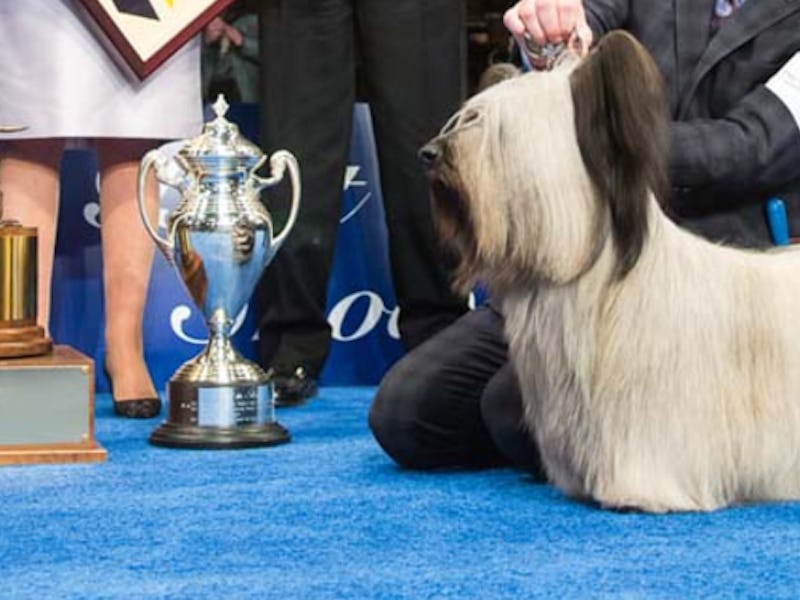Predicting the National Dog Show Winner Is a Genetic Gamble

After the Macy’s Thanksgiving Day parade and before the ritual turkey face-stuffing is when the real party happens: The National Dog Show. Presented by the Kennel Club of Philadelphia, the event has happened yearly since 1933. This year’s competition will feature 2,000 dogs competing to be the best damn dog in the United States. Who the ultimate good boy will be is a question of the dog’s physical finesse and exemplary behavior.
Technically, the competition already happened last Saturday and Sunday, but the American public won’t know the results until NBC airs them on Thanksgiving. If you plan on placing your bets and winning some cash from your relatives as you all try to figure out how to spend the day together, be advised that picking out the winner of the National Dog Show is no easy feat. You’ll need to critique the dogs with the same cutting eye as a judge: They look for canines with the bone structure, shape, movement, and temperament that’s considered ideal for their breed.
The 2016 winner, Charlie.
The 2016 “best of show” dog was a Skye Terrier named Charlie who, while crazy cute, won the competition because he was “in impeccable condition, hard-muscled with a beautiful coat.” He made it to the top after beating out the rest of the terrier competition; before the ultimate showdown, dogs are judged in the category groups of sporting, hound, working, terrier, toy, non-sporting, and herding. (So far, there is no “cloned dog” category.)
But be warned: While winning bets will be those placed on dogs that look like perfect specimens of their breed, it isn’t genetic perfection that gets a dog a big trophy. To guarantee ideal health, an animal should have a diverse genetic makeup, which increases its chances of being able to fight off disease; species that are inbred, in general, risk having unhealthy offspring, because there’s a chance that detrimental genetic mutations will collect with each generation.
According to the Institute of Canine Biology, many of the dogs that consistently compete well are also the dogs with the worst genetic diversity — including corgis, English setters, and a variety of terriers. While dogs overall have incredible genetic diversity considering how many species came from wolves, most breeding populations are characterized by high levels of genetic homogeneity.
The best good boy of 2015.
A wiser way of picking the top dog may be simply to look at the dogs that have won before. In a Bloomberg profile, Las Vegas sports booking overseer John Avello admitted that when he predicts dog show winners, he first relies on his gut feeling and researches how individual dogs have performed on the show circuit; then, he “zeroes in on the breeds continually running away with the blue ribbons at the highest levels.” Over six years, he’s accurately predicted the winning breed of the Westminster Dog show three times.
In the past four years, the winning dogs of the National Dog have been (in order): A Sky Terrier, a Bloodhound, an American Foxhound, a Wire Fox Terrier, and then another Wire Fox Terrier. In 2014, a Wire Fox Terrier also won the Westminster Dog Show — so going for that breed is probably a good bet. But a German Shorthaired Pointer won the 2016 Westminster competition, which may hint at the 2016 National Dog Show winner as well. Regardless, going for a terrier or a hunting breed may be your best bet for picking the best in show.